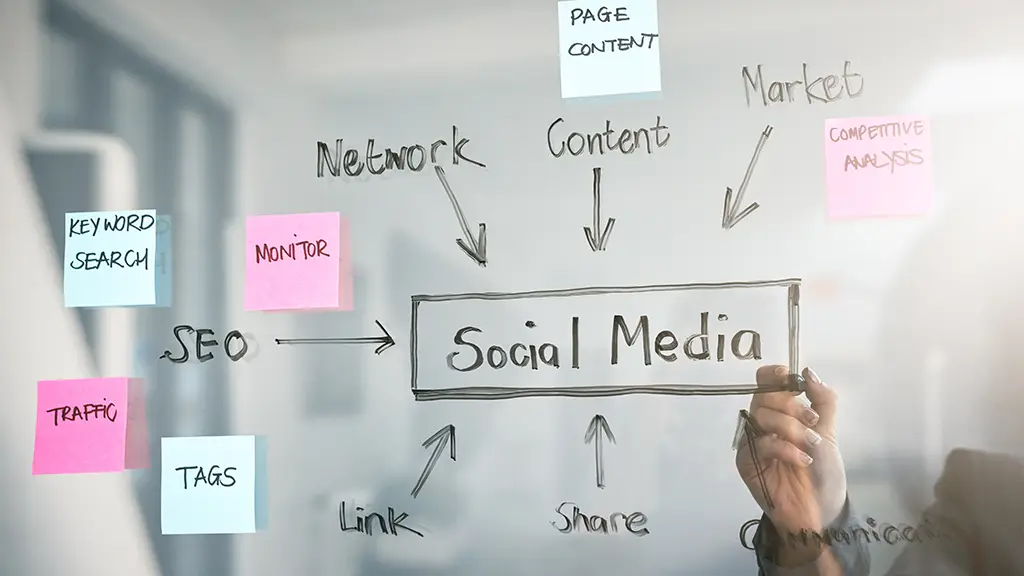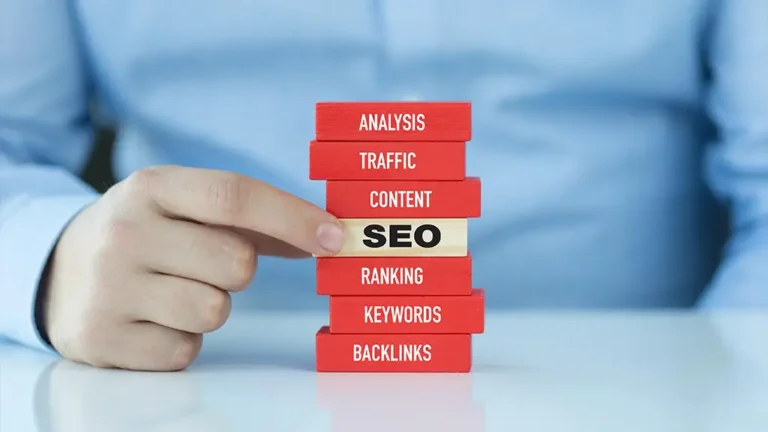The Connection Between Social Media and SEO: Boosting Rankings Through Engagement
In today’s digital world, social media and SEO (Search Engine Optimization) have become two key pillars of an effective online marketing strategy. While SEO focuses on optimizing a website’s content and structure to rank higher in search engine results, social media amplifies that content and increases visibility through engagement. The connection between the two is crucial, as each supports and enhances the other, leading to better rankings, more traffic, and a stronger online presence.
Search engines like Google use algorithms that take numerous factors into account when determining how a website ranks. These factors include the quality of content, backlinks, site speed, mobile-friendliness, and more. While social signals such as likes, shares, and comments may not directly affect rankings, social media plays an indirect but significant role in influencing search engine results. When content is shared or engaged with on social media, it increases its reach, visibility, and the chances of getting backlinks—all of which positively impact SEO.
This symbiotic relationship between social media and SEO is vital for any business looking to increase its online visibility. By optimizing social media engagement alongside your SEO efforts, you can ensure that your content gets noticed by a broader audience and is more likely to be linked to by other websites. Working with an experienced SEO agency can help you develop a cohesive strategy that integrates both SEO and social media to maximize your brand’s reach and improve rankings over time.
Social Media as a Traffic Source for SEO
Social media platforms, including Facebook, Twitter, Instagram, LinkedIn, and TikTok, serve as powerful tools for driving traffic to your website. While search engines remain the most significant traffic source for most websites, social media has become an increasingly important platform for referring visitors. When your content is shared or mentioned on social media, it reaches a wider audience, driving more people to click through to your website. This increase in traffic can send positive signals to search engines, contributing to higher rankings.
Search engines use user engagement metrics such as click-through rates (CTR) to gauge the relevance and quality of content. When users are actively sharing, liking, and commenting on your posts, it signals to Google that your content is valuable and engaging. This increased traffic from social media platforms can have a positive impact on your SEO efforts by improving your site’s CTR, which, in turn, can improve rankings.
Moreover, social media platforms can also help you target a highly relevant audience. By utilizing hashtags, geo-tagging, and interest-based targeting, you can reach users who are more likely to engage with your content and visit your website. This relevance improves the chances of attracting the right kind of traffic, further enhancing your SEO by ensuring that your content is being accessed by users who are most likely to benefit from it. By driving high-quality, relevant traffic to your website, social media directly supports SEO efforts and improves overall search rankings.
The Impact of Social Engagement on SEO Rankings
Engagement on social media is a significant factor that indirectly impacts SEO rankings. When users interact with your posts through likes, shares, and comments, it not only increases the visibility of your content but also signals to search engines that your content is worth paying attention to. Although social signals are not direct ranking factors in Google’s algorithm, they play an important role in boosting SEO by driving traffic, building authority, and improving online visibility.
The more your content is shared across various social media platforms, the more likely it is to attract backlinks. Backlinks, which are links from other websites that point to your content, are one of the most important ranking factors for SEO. When influencers, bloggers, or other businesses share your content on social media, it increases the chances of them linking back to your website, thus improving your domain authority and search engine rankings.
Social engagement can also help increase brand awareness, which is critical for SEO success. The more people who engage with your content, the more likely they are to remember your brand and visit your website again. Over time, this increase in brand recognition can lead to higher organic search traffic, as users search for your business directly. By fostering engagement on social media, businesses can build a loyal community that not only interacts with their content but also helps spread the word, increasing the chances of gaining valuable backlinks and higher SEO rankings.
In conclusion, while SEO and social media may seem like separate marketing channels, they are intricately linked, and both play a vital role in boosting search rankings and driving website traffic. Social media can amplify SEO efforts by increasing visibility, generating traffic, and fostering engagement that leads to more backlinks. Businesses that leverage both SEO and social media strategies in tandem can improve their overall online presence and create a more sustainable path to success.
Content Amplification through Social Media
One of the primary ways social media boosts SEO is through content amplification. Social media platforms have vast user bases that can help your content reach new audiences. When a post goes viral or receives significant engagement, it has the potential to bring a large volume of traffic to your website. This surge in traffic can positively impact your SEO by sending signals to search engines that your content is relevant, valuable, and worthy of higher rankings.
When businesses share blog posts, articles, or product updates on social media, these pieces of content become more discoverable. The more people share your content, the more backlinks and citations it may earn, which directly contribute to SEO rankings. Social sharing also encourages others to link to your content from their websites, blogs, or social profiles, creating an organic link-building process that benefits SEO. In this way, social media serves as an amplifier, extending the life and reach of content, all while positively influencing search engine rankings.
Another crucial aspect of content amplification is the ability to engage with influencers and industry leaders. When your content is shared or endorsed by influencers in your niche, it’s more likely to be seen and trusted by a larger audience. Influencers often have large followings, and their endorsements can drive more traffic to your website. This increased traffic, coupled with potential backlinks, further boosts your SEO performance. By leveraging influencer relationships and using social media platforms to amplify content, businesses can increase their visibility and SEO rankings over time.
Building Authority and Trust with Social Proof
Social media plays a significant role in building authority and trust with both users and search engines. Social proof is a psychological phenomenon where people tend to trust the actions and opinions of others. This trust is built through engagement, such as likes, comments, shares, and user-generated content. For businesses, social proof can take the form of testimonials, product reviews, and user interactions that demonstrate the quality of your products or services.
When your content garners positive engagement and receives social validation, it signals to search engines that your website is trustworthy and authoritative. Websites that generate consistent social signals tend to perform better in search rankings because they are seen as more reliable sources of information. For instance, when people see that a post has a significant amount of shares and comments, they are more likely to trust the content, visit your site, and share it further. This not only leads to increased traffic but also builds long-term credibility in the eyes of both users and search engines.
Social proof also plays a role in increasing user engagement. The more your content is shared or talked about on social media, the more likely it is that other users will engage with it. This increased engagement can lead to higher rankings as search engines consider user interaction a strong indicator of content quality. By fostering a positive and engaging presence on social media, businesses can build trust and authority that enhances their SEO efforts and boosts their position in search results.
Increased Brand Awareness Leading to SEO Success
Brand awareness is another area where social media directly impacts SEO. The more visible your brand is across social media platforms, the more likely people are to search for your website directly. This increase in direct searches, or brand searches, signals to search engines that your website is relevant and worthy of higher rankings. Social media provides a platform to continuously engage with your audience, keeping your brand top-of-mind, and encouraging future searches and visits to your website.
For businesses, building brand awareness on social media means creating a strong, consistent online presence. When users repeatedly see your brand’s content in their social media feeds, it creates a sense of familiarity and trust. This helps not only to foster loyalty but also encourages users to actively seek out your website for more information. Over time, as your brand becomes more recognized, more people will search for it by name, leading to an increase in branded search queries. Search engines, including Google, see branded searches as a strong signal of content relevance, and they often reward these signals with higher rankings.
Additionally, the more your brand is discussed, mentioned, or linked to on social media, the more authority it gains. Social media mentions, even without direct backlinks, can signal to search engines that your brand is gaining traction and relevance. These mentions help increase the likelihood of your content being featured in search results, driving even more traffic to your website. By creating engaging and shareable content on social media, businesses can increase brand awareness, which in turn strengthens their SEO and results in long-term online visibility.
Together, these elements—content amplification, social proof, and brand awareness—work synergistically to boost your SEO. While social media may not directly influence rankings, it plays a critical supporting role in enhancing website visibility, improving user engagement, and building the authority needed to rank higher. As businesses continue to focus on both SEO and social media, they can strengthen their digital presence and attract a larger, more engaged audience.
Social Media Signals and Their Indirect SEO Impact
While social media signals like shares, likes, and comments are not direct ranking factors for Google, they still play an important role in SEO. Search engines, particularly Google, focus on providing the best, most relevant content to users, and social media signals can help indicate the quality and relevance of content. When your content is shared widely or garners high engagement, it indicates to search engines that your content is valuable and resonates with a larger audience, which can indirectly help improve your rankings.
Google’s algorithms are sophisticated enough to track engagement on social media platforms. While the algorithm doesn’t directly count social media signals for ranking purposes, they influence the content’s visibility and traffic, both of which are factors that can indirectly boost SEO. Increased social signals generally lead to greater exposure, more visitors to your site, and ultimately more backlinks, which are a critical ranking factor for SEO.
When content receives attention on social platforms, it can be a sign that it is important or relevant to users. If your posts are shared by authoritative influencers, for example, this may signal to Google that your content is trustworthy. Consequently, search engines may rank your content higher due to increased credibility. Moreover, social media shares can lead to more natural backlinks, as users and influencers who find your content useful are more likely to link back to it from their own blogs, articles, or websites, further enhancing SEO.
Additionally, social media posts that attract high engagement can signal to search engines that users find your content valuable, which increases the likelihood of it being recommended in future searches. By ensuring that your social media content is engaging and shareable, you can create a cycle that feeds into itself—more engagement leads to higher rankings, which in turn leads to even more engagement and traffic.
Using Social Media to Boost Local SEO
For businesses targeting local customers, social media is an excellent tool for boosting local SEO efforts. Many social media platforms, such as Facebook, Instagram, and Twitter, offer robust features to help businesses connect with their local audience. Social media helps businesses connect with local consumers by improving visibility in local searches and driving foot traffic to physical stores.
When businesses post regularly about local events, promotions, or community involvement on social media, they can attract the attention of local customers and encourage them to engage with the brand. Local businesses can also take advantage of location-based tags and geotags on platforms like Instagram and Facebook. These tools help businesses appear in local searches when users are looking for products or services in their area, increasing the likelihood of appearing in local search results.
A strong local presence on social media also contributes to Google My Business (GMB) ranking factors. Google’s algorithms use the consistency and activity on social media platforms to gauge the relevance and activity level of a business in the local market. A frequently updated social media presence that engages with local customers can complement GMB efforts and improve rankings in local search results. Encouraging customers to share their experiences and tag your business in posts also provides valuable social signals that help improve your local SEO.
Another important factor for local SEO is customer reviews. Many users leave reviews and feedback on social media platforms, which contribute to the overall perception of your business in the local community. Positive reviews and testimonials shared on social media not only build credibility but also contribute to the trustworthiness and authority of your brand, boosting your local SEO performance. Engaging with customer feedback, thanking them for their comments, or resolving any complaints shows search engines that you value customer interaction, which can lead to better rankings.
The Role of Social Media for Content Discovery
Social media is an incredibly effective tool for content discovery. When businesses share content on social media platforms, it increases the likelihood of that content being discovered by a broader audience. This is particularly important for businesses looking to drive traffic to newly published blog posts, articles, or landing pages. The more eyes on your content, the more likely it is that other websites will link back to it, and backlinks are one of the most influential ranking factors for SEO.
Social media platforms also act as a content distribution network, helping search engines find and index new content more quickly. When you share your blog posts or new product pages on social media, search engine bots are more likely to crawl those pages faster. This means that content shared on social media can be indexed more quickly by Google, leading to faster visibility in search results. In this way, social media can help accelerate the SEO process by ensuring that fresh content gets discovered and indexed by search engines promptly.
Moreover, social media plays a significant role in content virality. A single share or mention by an influencer or industry leader can snowball into widespread engagement, creating a wave of traffic that helps the content rank higher in search results. As more people discover your content through social sharing, the chances of that content being referenced and linked to by other websites increase, thus benefiting SEO. The more viral your content becomes on social media, the greater the potential for it to generate backlinks, social signals, and traffic, all of which contribute to higher search rankings.
Measuring the ROI of Social Media Engagement for SEO
Tracking the effectiveness of social media engagement for SEO can be tricky, as the relationship between the two is often indirect. However, measuring the ROI of social media engagement is crucial to understanding how your social media efforts are contributing to your overall SEO performance. There are several ways to track and measure the success of your social media campaigns and their impact on SEO.
One key metric is traffic. By using tools like Google Analytics, you can track the amount of traffic that comes from social media platforms to your website. Look at the number of visitors referred from social media channels and analyze how they interact with your website. Are they staying on the page? Are they browsing through multiple pages? Tracking this behavior can help you understand if your social media content is driving relevant traffic that contributes to your SEO goals.
Another important metric is engagement rate. This includes likes, shares, comments, and mentions. High engagement indicates that your content is resonating with your audience and likely being seen by a larger number of people, increasing its potential for SEO benefits. It’s also important to track the number of backlinks generated by social media shares. If your social media posts lead to new links from other websites or influencers, it’s a strong indicator that your social media engagement is helping with SEO.
Finally, brand searches can be a valuable metric for measuring ROI. As your brand gains visibility through social media, more people may search for it directly. Increased brand searches can contribute to better SEO rankings, as Google sees these searches as a positive signal of relevance and trust. Tracking brand search volume and changes over time can help you gauge the long-term impact of your social media efforts on SEO.
By regularly measuring the ROI of your social media engagement, businesses can fine-tune their social media and SEO strategies to ensure they are effectively working together to boost rankings and drive long-term success.

















